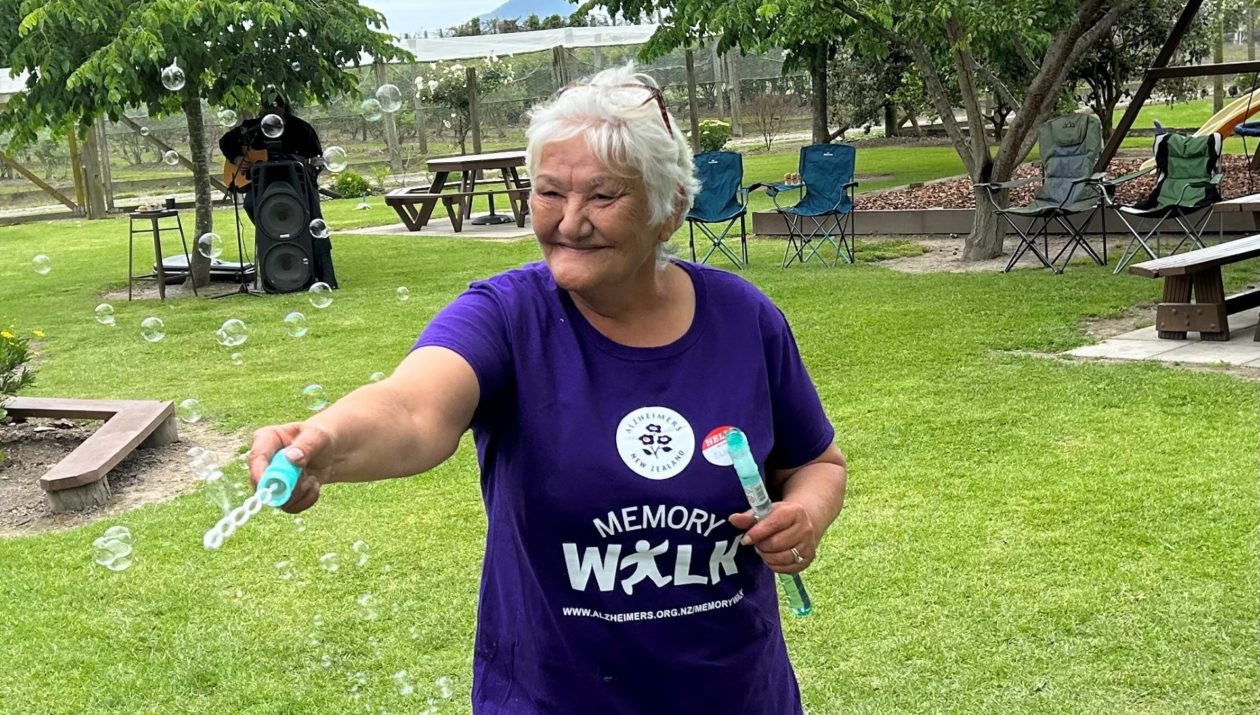Elayne’s story

“It’s not about your friend or loved one remembering you, but you remembering them.”
Elayne Tangitu said those words above during a recent chat. Elayne is on the front line of our services, and in the Eastern Bay of Plenty (EBOP), she may be the first person to connect with a whānau with a new dementia mate wareware diagnosis.
It’s been an interesting journey for Elayne to become a Navigator for Alzheimers EBOP. She took the role with us 10 years ago, and before that she was working in the mental health field.
It was while she was working in mental health that she fell in love with the brain and how it works. It has been a life’s journey for Elayne to learn about how memories are created, how we experience happiness and our ways of learning.
A Navigator is a unique role in Alzheimers NZ. It is a role designed to help people living with dementia mate wareware, and their whānau to engage with the very complex and fragmented health system. This is an extremely important role, and can be a life line for many whānau.
As a registered Social Worker, Elayne reflects that for many people who she makes contact with, it is often the first time in their lives that they have really needed to ask for help, and this can be quite confronting for some people.
It is very important, as a Navigator to do the whanaungatanga (forming and maintaining relationships and strengthening ties between kin and community) first. This establishes a relationship with the family and builds trust to work together.
It is so important to break down barriers and work together as partners in the journey. Elayne is especially good with this, as her Manager, Sue says:
“We are so thankful to have Elayne as part of our Navigation team. She is very experienced in supporting those affected by dementia mate wareware and provides amazing mahi (work) in the community.
She provides good practical advice and support throughout the dementia journey – everything from adjusting to change, managing symptoms, staying active and supporting the carer and whanau.
Everyone’s dementia journey is different, and Elayne works hard to personalise support plans to make the journey less scary.”
Being a good Navigator requires you to be available when the family needs some support. They are there to support, whether it is providing education on the changes that are happening or providing self-care for carers.
One of the highlights for Elayne in her role has been participating in a pilot for Māori CST (Cognitive Stimulation Therapy). This work had incredible results for people living with dementia. Those who participated in the therapy became more interactive with their partners and loved ones. They were more sociable, and gained confidence to be a part of bigger groups, when this would not have been a situation they were comfortable with before the therapy.
CST in EBOP, and all other regions around NZ are only able to be run when the funding is available. The benefits have been proven multiple times and Alzheimers NZ fully supports the use of CST.
Elayne loves her job and she struggled to find any serious challenges when asked. The hardest situation she gets involved in is when a person refuses to accept a dementia mate wareware diagnosis. This can be confronting for their loved ones, but over the years, Elayne has learnt how to navigate this situation and reassure everyone involved that living with dementia does not mean that the person loses their identity.
People are the reason that Elayne loves her job so much, “it’s my time to give back to older people. It’s a very rewarding job and I feel appreciated by the families, my boss, and colleagues.”

